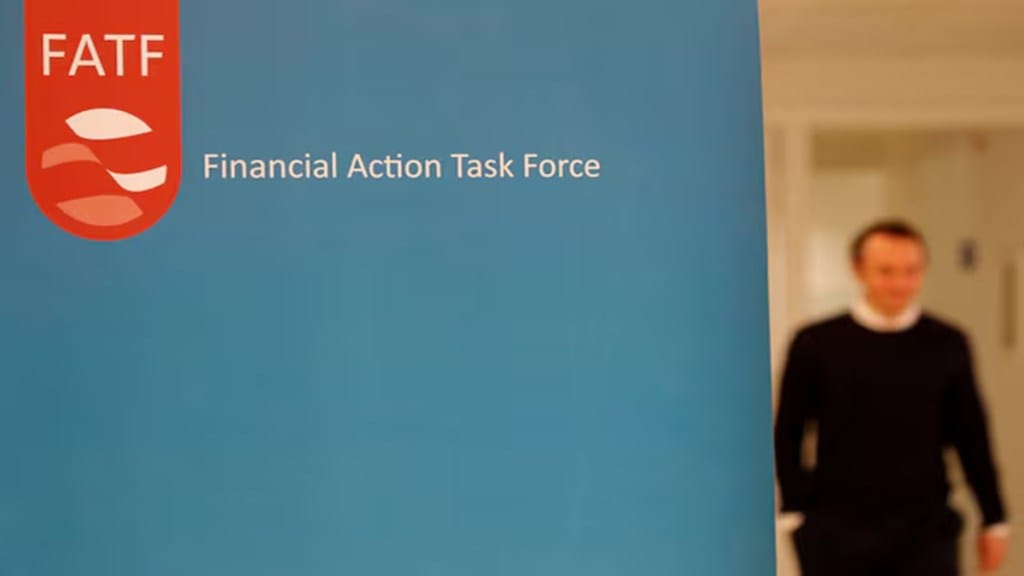India has achieved a “high-level of technical compliance” under the Financial Action Task Force’s (FATF) mandate to launch a frontal assault on money laundering (ML), while also taking “significant steps” to tackle illicit finance, the inter-governmental organisation said on Thursday.
Recently, the FATF has placed India in ‘regular follow-up’ category–the top amongst four categories, in terms of combating ML.
However, the FATF remarked in India’s ‘Mutual Evaluation Report’ (MER), that it critical that the country continues to improve its system as its economy and financial system continue to grow. Ensuring that money laundering and terrorist financing trials are completed and offenders are subject to appropriate sanctions is important , it noted, while stressing the need for risk-based and educative approach with non-profit organisations (NPOs) in this regard.
The FATF also said that India faces serious terrorism and terrorist-financing threats, including related to ISIL or Al Qaeda. Additional Revenue Secretary Vivek Agarwal said that India will adopt a “nuanced” approach to deal with “at-risk” non-profit organisations, as the scope for NPOs being misused is very less in India because there is a cap on cash donations.
“For India, it should be a risk-based regulation and not stifling regulation… We don’t see a case for further tightening, as NPO is a very big sector,” Agarwal said, while adding that efforts of India are towards having a better outreach with the NPOs to encourage them to maintain their accounts, and donors’ list.
The Finance Ministry said that India’s performance on the FATF Mutual Evaluation accrues significant advantages to our growing economy, as it demonstrates the overall stability and integrity of the financial system. Good ratings will lead to better access to global financial markets and institutions and increase investor confidence, it said.
The FATF has rated India’s compliance in six of the 11 ‘effectiveness’ indicators, as ‘substantial’; in the rest five, the rating is ‘moderate’. The indicators include: ‘risk policy and coordination’, ‘international cooperation’, ‘supervision’, ‘preventive measures’, ‘legal persons and arrangements’, ‘confiscation’ etc.
Agarwal said that the anti-money laundering watchdog has given its ratings post thorough assessment of all mechanisms the government has in place for curbing money-laundering and terror financing. Agarwal said that between 2018-2023, around 4 lakh “shell companies” have been deregistered by the corporate affairs ministry in an effort to combat money laundering.
India has made significant steps in financial inclusion, more than doubling the proportion of the population with bank accounts, encouraging greater reliance on digital payment systems, and making use of simplified due diligence for small accounts. “These efforts have supported financial transparency, which in turn contribute to anti-money laundering and counter-terrorist financing (AML/CFT) efforts,” the FATF said.
Despite the size and institutional complexity of the Indian system, Indian authorities cooperate and coordinate effectively on matters dealing with illicit financial flows, including the use of financial intelligence, the FATF mentioned. India also achieved positive results in international cooperation, asset recovery and implementing targeted financial sanctions for proliferation financing, it added.
That said, the intergovernmental organisation said that Indian authorities have to do more to share insights on risks associated with money laundering and terrorism across all relevant stakeholders.
The FATF also mentioned that the number of money laundering convictions is low, with many cases pending trial. Although numbers of prosecutions and convictions have started to increase recently, the backlog of pending cases remains considerable, with a large number of accused persons awaiting conclusion of their trials.This impacts the extent to which confiscation of criminal proceeds is carried out, in particular the ML cases that the ED is responsible for, said the FATF.
In response Agarwal said that India has introduced several legal reforms, such as the Bharatiya Nyaya Sanhita (BNS), which replaced the Indian Penal Code (IPC), which is likely to enhance the trial speeds and reduce pendency of cases.

